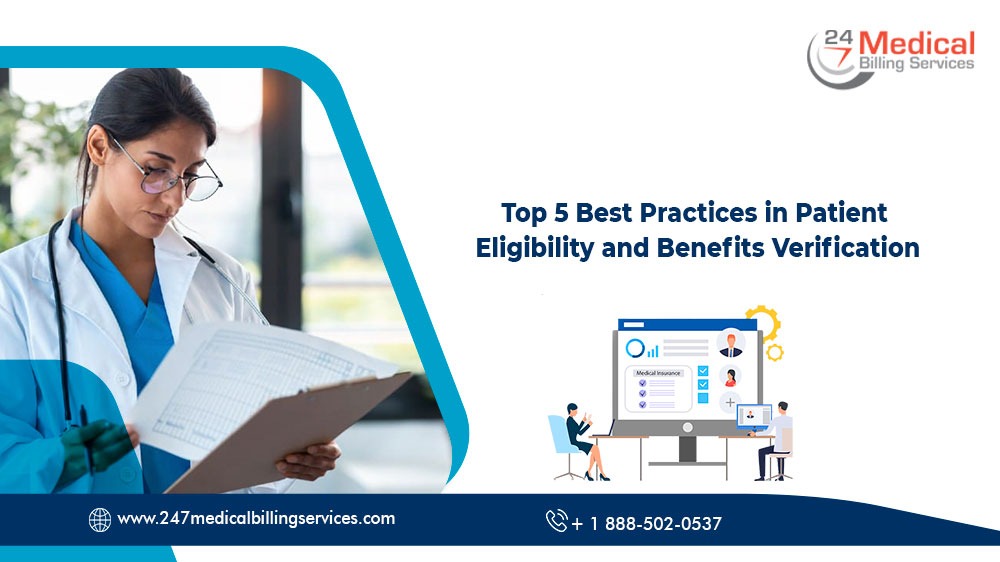
Top 5 Best Practices in Patient Eligibility and Benefits Verification
Prior to treatment, medical care providers must verify all of their patients' insurance coverages and benefits. This practice eliminates the possibility of making mistakes when filing for insurance reimbursements. An effective process for verifying patients' insurance eligibility helps to improve insurance payments while reducing the risk of claim rejections and delayed payments. While the process of patient eligibility and verification is time-consuming, it also necessitates skilled execution. The entire process is divided into stages, each of which requires expert intervention to obtain the desired results and optimize the output.
Here are the best practices for making the patient eligibility verification process more efficient and faster:
1. Gather data from everywhere
The collection, analysis, and utilization of all possible methods to verify appropriate insurance coverage were required for patients' eligibility verification. The key component in this case is data. You must identify all sources of accurate information about patients and their insurance plans. This can begin with recording information about the patient's demography, insurance coverage, type of plan, date of commencement and expiry, the status of plans, information about copays and deductibles, patient responsibility, and insurance reimbursements.
2. Perform a thorough data check
The data needed for the eligibility verification process must be accurate and up to date. A thorough examination of all data pertaining to these two aspects is required. The use of outdated, incorrect, or missing data can jeopardize the process's success. When such data is presented to an insurance company, it is either immediately rejected or held over for extended periods of time, resulting in financial loss and an impact on account receivables.
3. Verify Eligibility at the Appropriate Time (s)
In addition to determining the best verification method for your practice, it is critical to ensure that your staff is verifying patient eligibility at the appropriate time(s) and to establish a routine batch verification schedule. Though your practice should find a schedule that works for your staff and your needs, there are a few occasions when eligibility tests are typically recommended.
When on the phone with a patient, the most common recommendation is to schedule an appointment. This gives you time to correct any errors or gaps in coverage before the patient arrives, avoiding the awkward situation of explaining why the physician is unable to see the patient. It's also a good idea to double-check their insurance information when they arrive, as insurance plans can change in a matter of days.
4. Reiterate Payment Obligation at Check-In
If you train your staff to verify eligibility and calculate price estimates for patients over the phone when scheduling appointments, it's still important to remind them of their financial responsibility. It is also crucial to remind the staff what copay they need to offer, for example. your practice should also have a written patient payments policy available to patients, either in the office or on your website, that can answer billing-related questions for patients.
5. Examine the patients' knowledge of their insurance plans
It is critical to determine how well the patient understands his insurance plans, coverage, and responsibilities. Several times, it has been observed that patients are completely unaware of the changes introduced by the insurance provider. When such surprises occur during the payment process, and the patient is left paying large sums out of pocket, the relationship and trust between the patient and service provider suffer. To overcome this, the provider must inform the patient about the out-of-pocket costs prior to treatment.
Seek Professional Advice!!
The verification process is best carried out by experts. You can outsource this task to professionals of 24/7 Medical Billing Services while focusing your staff on other areas that require more focus and attention. The subject matter experts are capable of handling every stage of the insurance verification process with clarity, confidence, and competence. Professionals with experience dealing with multiple clients can better identify gaps and find better solutions to resolve issues faster.
Read more: How To Verify Eligibility And Benefits For Behavioral Health Providers?

.png)